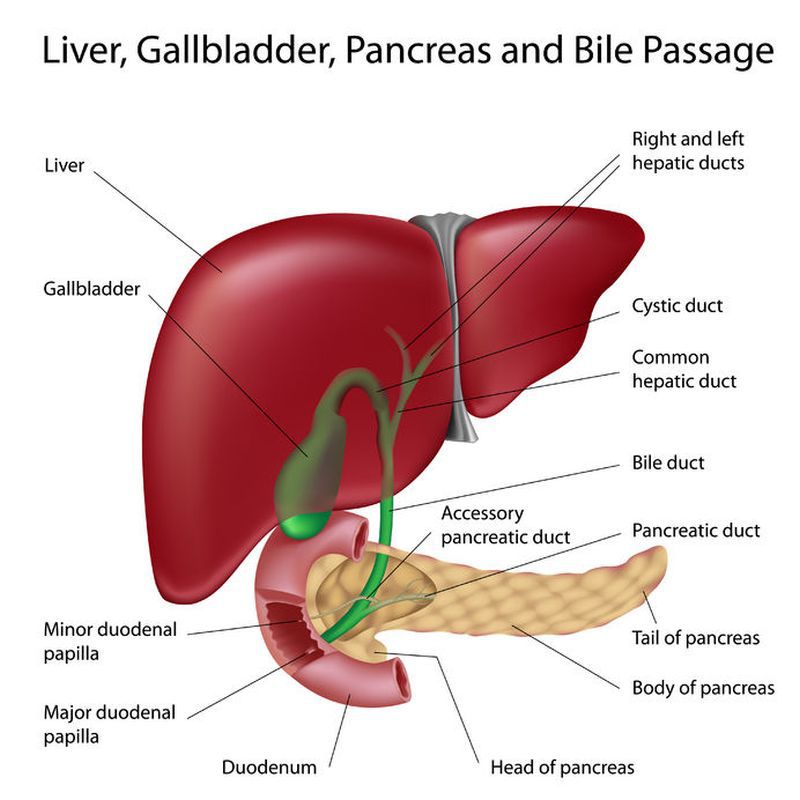Biliary gall bladder (gallbladder), her serious illnesses and her allowance

Generally, there is a wide range of biliary diseases that we can acquire and which also appear in the category of complications. The most common is biliary colic. Doctor Gastroenterologist Adelina Popescu explains to CSID how a biliary crisis is manifested, what role does diet play in this process and what can be the treatment. Biliary disorders that may have complications: Acute cholecystitis - Acute inflammation of the cholecist most commonly caused by calculi that blocks the excretion of bile juice in the intestines; . In the elderly, there may be a risk of developing gallbladder cancer as a consequence of chronic inflammation at this level. Biliary disorders can manifest in many ways.
The most common is biliary colic, which typically consists of high-intensity right subcortical pain that irradiates in the right shoulder or epigastric. The crisis usually lasts for less than 6 hours and may be accompanied by nausea or vomiting, which occurs after a long, rich meal. In biliary litiazque colic, there is a clear cause that has caused it, namely bile stones ( In this situation, other symptoms and signs such as fever, chills, jaundice (yellowing of the skin) may appear that may suggest a complication called acute cholecystitis. In the aliasing bile colic there is no calculus in the cholecystep, and the pain is generally caused by an inappropriate excretion of the bile juice (biliary dyskinesia). When pain becomes intense and irradiation can predict a serious complication such as acute pancreatitis.
Risk factors that predispose to the development of biliary calculi: female gender, advanced age, obesity, pregnancy, certain medications (eg estrogen), sudden weight loss, lack of physical activity, frequent starvation, certain diseases (diabetes mellitus, hyperlipidemia . To a lesser extent, mental stress can cause an increase in blood cholesterol, a situation that predisposes to the formation of bile calculi. Nutrition in Bowel Disease (Cholecist) Nutrition is a major factor in biliary pathology. The bile (bile juice) is secreted by the liver cells, deposited in the colecist and discharged into the small intestine (duodenum) after the meal. Its main role lies in the digestion and absorption of ingested fats and vitamins necessary for the good functioning of the body.
In other words, as soon as we eat, the cholecist contracts and releases bile juice that has been stored between meals. Some foods, called cholecystokinetics, stimulate bile duct contraction and may trigger a bile colic: animal fats, chicken, pizza, alcohol, refined sweets. Avoiding these products can prevent biliary disorders. Consumption of lean meats, fish, vegetable fibers (vegetables and fruits), whole bread and pasta is a beneficial nutrition in the prevention of these types of diseases. Some epidemiological studies suggest that constant consumption of coffee, green tea and caffeine can protect us from the formation of bile calculi.
It starts with a change in lifestyle and diet and can end with a surgical intervention - cholecystectomy. In biliary arthritis, the treatment consists of anti-inflammatory and antispasmodic.
Source : csid.ro
Views : 3885
Popular Article
- (photo) Nude becomes art.
Posted: 2018-03-17, 9706 views.
- The harmful effects of air conditioning on the skin
Posted: 2017-06-08, 8394 views.
- 3 causes of dyed hair discoloration
Posted: 2017-06-15, 8266 views.
- Why early puberty occurs in girls: symptoms, favors, diagnosis and treatment
Posted: 2017-10-24, 8113 views.
- Good or bad skin treatments in the hot season
Posted: 2017-06-07, 7846 views.
Recommendations
- (photo) Nude becomes art.
Posted: 2018-03-17, 9706 views.
- The harmful effects of air conditioning on the skin
Posted: 2017-06-08, 8394 views.
- 3 causes of dyed hair discoloration
Posted: 2017-06-15, 8266 views.
- Good or bad skin treatments in the hot season
Posted: 2017-06-07, 7846 views.
- Risks of practicing sports on hot days
Posted: 2017-06-12, 7443 views.
 4 effective ingredients in the fight against acne.
4 effective ingredients in the fight against acne. How to get rid of hiccups fast
How to get rid of hiccups fast The wheat bran diet: the secret of lost pounds as if by magic
The wheat bran diet: the secret of lost pounds as if by magic The recipe that will sweeten your soul this weekend!
The recipe that will sweeten your soul this weekend!  Is it dangerous or not to refreeze meat after thawing it?
Is it dangerous or not to refreeze meat after thawing it?  The unusual sign of diabetes indicated by saliva.
The unusual sign of diabetes indicated by saliva. What to drink to boost your immune system.
What to drink to boost your immune system. 10 foods that help you never age.
10 foods that help you never age. What actually happens in your body if you drink a cup of coffee for breakfast
What actually happens in your body if you drink a cup of coffee for breakfast 5 surprising benefits of chia seeds
5 surprising benefits of chia seeds